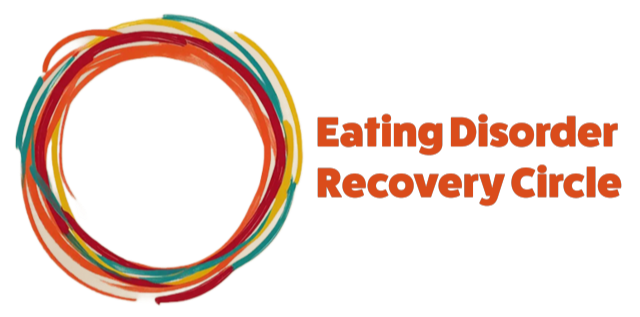How to Know if You’re in Quasi-Recovery
Mar 13, 2025Quasi-recovery is one of the biggest traps in eating disorder recovery—a place where you may have made progress, but you’re still holding onto parts of the disorder.
✔ “I’m eating more, but only my ‘safe’ foods.”
✔ “I’ve gained some weight, but I still body-check constantly.”
✔ “I tell people I’m ‘fine,’ but food and numbers still control me.”
Quasi-recovery feels safer than full recovery because you’ve let go of some disordered behaviours, but not all. It’s a limbo between sickness and freedom—and staying there too long can lead to relapse.
If you’re unsure whether you’re still in quasi-recovery, check the Feelings Navigator for tools to help you assess where you are.
Step 1: Recognise the Signs of Quasi-Recovery
🚫 Quasi-recovery is not full recovery—it’s a state of partial healing where eating disorder thoughts and behaviours still linger.
✔ Common signs include:
- Still following ‘rules’ around food (eating enough, but only at certain times or in certain ways).
- Avoiding ‘fear foods’ instead of challenging them.
- Engaging in compensatory behaviours (exercising to ‘make up’ for eating, portion-controlling without flexibility).
- Obsessing over body changes (still fixated on weight, body-checking, or avoiding mirrors).
- Living in constant anxiety around food, even if you are eating more.
💡 Quasi-recovery often looks like progress, but it still feels exhausting. True recovery is freedom.
📌 If you relate to these signs, check the Feelings Navigator for support in breaking free from lingering disordered thoughts.
Step 2: Ask Yourself If You’re Still Trying to ‘Control’ Recovery
One of the biggest signs of quasi-recovery is still trying to control parts of the process.
🔹 Are you still carefully ‘balancing’ your intake to avoid weight gain?
🔹 Do you avoid eating spontaneously or outside of your comfort zone?
🔹 Are you eating enough to function, but not enough to thrive?
🚫 Real recovery means FULL nourishment—physically and mentally.
💡 If you’re still micromanaging your recovery, you are not fully free.
📌 If letting go of control feels too scary, discuss it inside The Circle.
Step 3: Stop Using ‘I’m Better Than Before’ as an Excuse
🚫 Feeling ‘better’ does not mean you are fully recovered.
✔ Recovery is not about being ‘better than before’—it’s about FULL freedom.
✔ If you wouldn’t accept your current mindset for someone you love, it’s not real recovery.
✔ Being ‘functional’ does not mean you’re free from the disorder.
💡 Ask yourself: If I stayed like this forever, would I truly be happy?
📌 If the answer is no, you know there’s more work to do—reach out inside The Circle for support.
Step 4: Identify What’s Keeping You Stuck
If you recognise you’re in quasi-recovery, ask yourself what’s holding you back from full recovery.
✔ Fear of weight gain? (Take the Fear of Weight Gain Course inside The Circle’s course library.)
✔ Fear of losing control? (Check the Feelings Navigator for tools on trust and body acceptance.)
✔ Fear of letting go of your eating disorder identity? (Talk through it inside The Circle.)
💡 Knowing what’s keeping you stuck is the first step to breaking free.
📌 If you don’t know what’s stopping you, ask inside The Circle—you don’t have to figure it out alone.
Step 5: Commit to the Harder Steps That Lead to Full Freedom
Quasi-recovery feels safe because it allows you to hold onto small pieces of the disorder—but full recovery means choosing the hard, uncomfortable steps:
✔ Eating more than the bare minimum.
✔ Challenging ALL food rules—not just some.
✔ Giving up body-checking and exercise compensation.
✔ Letting go of control and trusting your body.
🚀 Freedom doesn’t come from doing ‘just enough’—it comes from fully committing to recovery.
📌 If you’re ready to push forward, find an accountability partner inside The Circle.
When to Seek Extra Support
If you recognise that you’re in quasi-recovery but feel stuck, you don’t have to figure this out alone.
🔹 A recovery coach or therapist can help you move past the final barriers.
🔹 Others inside The Circle can share their experiences of moving from quasi-recovery to full freedom.
🔹 You do not have to settle for a half-recovered life.
Next Steps
🎯 For extra support in facing full recovery, join discussions inside The Circle.
🎯 Commit to one step this week that pushes you closer to FULL recovery.
Final Reminder
🚀 Quasi-recovery is not your final destination. You did not come this far just to stay here.
Real recovery is freedom from food rules, weight obsession, and the constant mental battle.
You deserve a life where food is just food—and you are fully free. ❤️

